Mako and Kei Komuro, both 30, first met when they were students at the International Christian University at a study-abroad event held at a restaurant in the Shibuya district of Tokyo.
Mako previously told The Telegraph that, “First, I was attracted by his bright smile.” Komuro proposed in December 2013 and the couple continued to have a long-distance relationship while Mako worked towards her master’s degree in Art Museum and Gallery Studies at Leicester University in England.
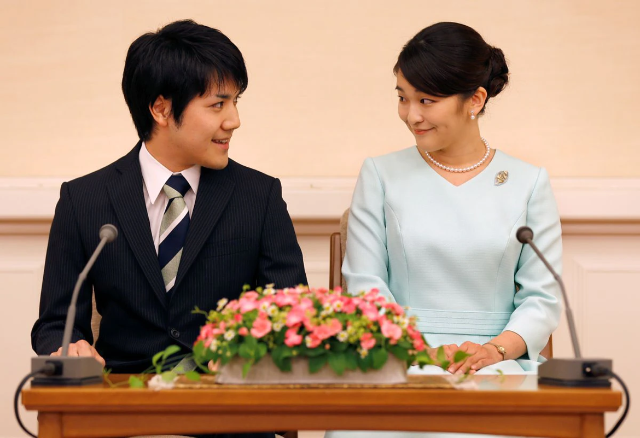
She graduated in 2016, and the following year she and Komuro held a press conference with Japanese media to discuss their plans to wed, a ceremony which was scheduled to take place in November 2018, a move cheered by the country.
However, things soon turned sour as tabloids reported on a money scandal involving Komuro’s mother, prompting the press to turn on him.
That February, Imperial Household announced the marriage would be postponed until 2020 with Mako citing “immaturity” as the cause for the delay.
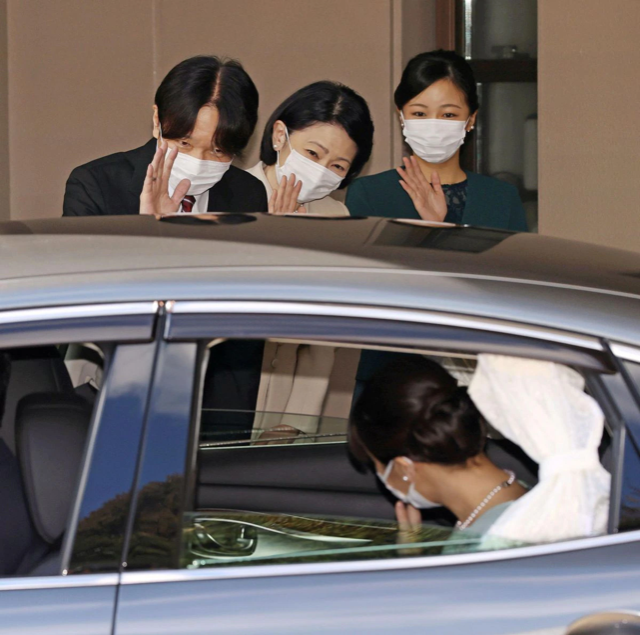
The marriage was postponed, and he left Japan for law studies in New York in 2018 only to return in September.
Their marriage consisted of an official from Imperial Household Agency (IHA), which runs the family’s lives, submitting paperwork to a local office in the morning, foregoing the numerous rituals and ceremonies usual to royal weddings, including a reception.
Mako also refused to receive a one-off payment of about $1.3 million typically made to royal women who marry commoners and become ordinary citizens, in line with Japanese law.
Television footage showed Mako, wearing a pastel dress and pearls, saying goodbye to her parents and 26-year-old sister, Kako, at the entrance to their home. Though all wore masks in line with Japan’s coronavirus protocol, her mother could be seen blinking rapidly, as if to fight off tears.
Though Mako bowed formally to her parents, her sister grabbed her shoulders and the two shared a long embrace.
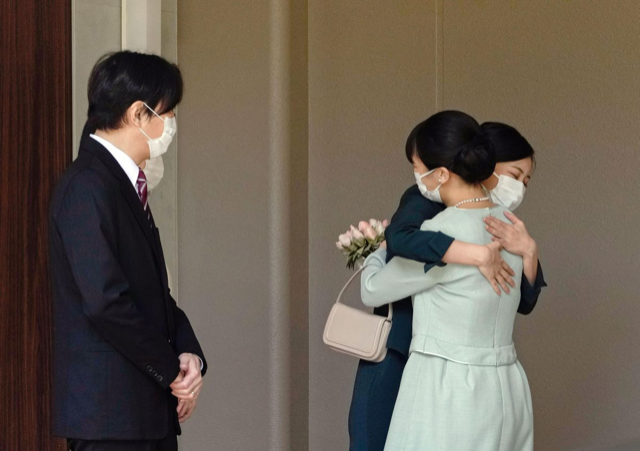
In the afternoon, Mako and her new husband will hold a news conference, which will also depart from custom. While royals typically answer pre-submitted questions at such events, the couple will make a brief statement and hand out written replies to the questions instead.
“Some of the questions took mistaken information as fact and upset the princess,” said officials at the IHA, according to NHK public television.
Komuro, dressed in a crisp dark suit and tie, bowed briefly to camera crews gathered outside his home as he left in the morning but said nothing. His casual demeanour on returning to Japan, including long hair tied back in a ponytail, had sent tabloids into a frenzy.
Just months after the two announced their engagement at a news conference where their smiles won the hearts of the nation, tabloids reported a financial dispute between Komuro’s mother and her former fiance, as the man claimed mother and son had not repaid a debt of about $35,000.
The scandal spread to mainstream media after the IHA failed to provide a clear explanation. In 2021, Komuro issued a 24-page statement on the matter and also said he would pay a settlement.
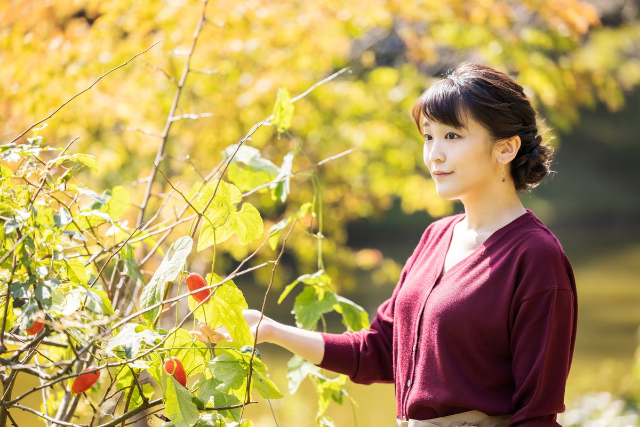
Public opinion polls show the Japanese are divided about the marriage, and there has been at least one protest.
Analysts say the problem is that the imperial family is so idealised that not the slightest hint of trouble with things such as money or politics should touch them.
The fact that Mako’s father and younger brother, Hisahito, are both in the line of succession after Emperor Naruhito, whose daughter is ineligible to inherit, makes the scandal particularly damaging, said Hideya Kawanishi, an associate professor of history at Nagoya University.
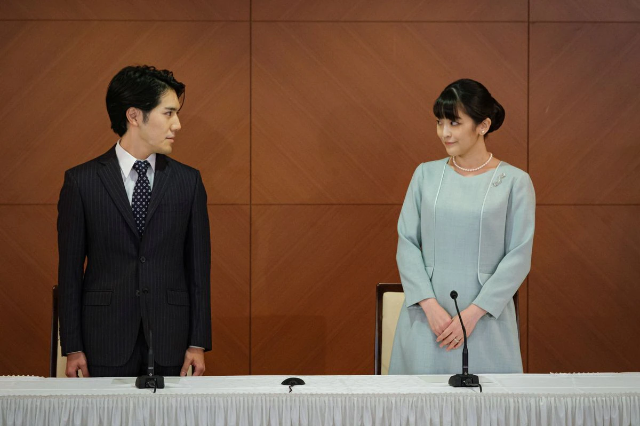
He expressed;
Though it’s true they’ll both be private citizens, Mako’s younger brother will one day become emperor, so some people thought anybody with the problems he (Komuro) had shouldn’t be marrying her.
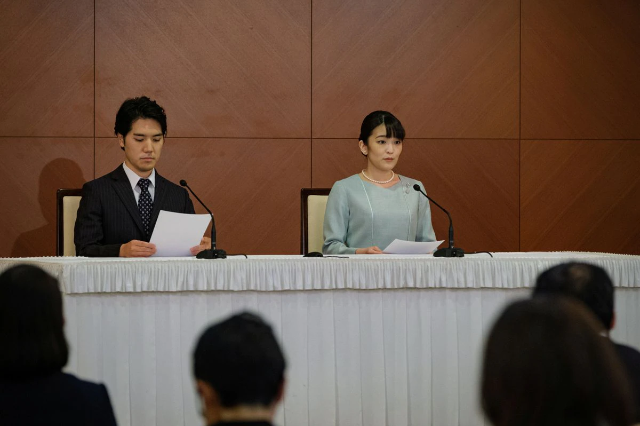
The two will live in New York, though Mako will remain on her own in Tokyo for some time after the wedding to prepare for the move, including applying for the first passport of her life.
Via Reuters.

Comments are closed.